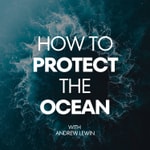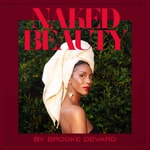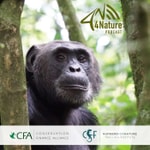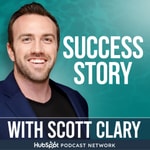How To Protect The Ocean – Details, episodes & analysis
Podcast details
Technical and general information from the podcast's RSS feed.

How To Protect The Ocean
Andrew Lewin
Frequency: 1 episode/2d. Total Eps: 1755

Recent rankings
Latest chart positions across Apple Podcasts and Spotify rankings.
Apple Podcasts
🇬🇧 Great Britain - nature
31/07/2025#98🇬🇧 Great Britain - nature
30/07/2025#85🇬🇧 Great Britain - nature
29/07/2025#65🇬🇧 Great Britain - nature
28/07/2025#48🇨🇦 Canada - nature
27/07/2025#99🇩🇪 Germany - nature
27/07/2025#88🇨🇦 Canada - nature
26/07/2025#85🇨🇦 Canada - nature
25/07/2025#74🇨🇦 Canada - nature
24/07/2025#60🇨🇦 Canada - nature
23/07/2025#55
Spotify
No recent rankings available
Shared links between episodes and podcasts
Links found in episode descriptions and other podcasts that share them.
See all- http://www.speakupforblue.com/group
2731 shares
- http://www.speakupforblue.com/app
1144 shares
- https://spoti.fi/2kkEElk
1062 shares
- https://spoti.fi/2k4ZMMf
1062 shares
- https://spoti.fi/2lV6THt
1062 shares
- https://apple.co/2k6XPio
1062 shares
- https://apple.co/2lB9Blv
1062 shares
- https://apple.co/2lx86oh
1062 shares
RSS feed quality and score
Technical evaluation of the podcast's RSS feed quality and structure.
See allScore global : 79%
Publication history
Monthly episode publishing history over the past years.
Navigating Marine Science Careers: Building Your Resume Beyond Courses and Internships
Season 1 · Episode 1658
vendredi 30 août 2024 • Duration 18:54
In this episode, the host shares insights on preparing for a career in wildlife biology, drawing from personal experiences and discussions with his daughter. He also mentions feedback received from listeners and a suggestion from a colleague about enhancing resumes with additional experiences beyond courses and internships.
Follow a career in conservation: https://www.conservation-careers.com/online-training/ Use the code SUFB to get 33% off courses and the careers program. Do you want to join my Ocean Community?Sign Up for Updates on the process: www.speakupforblue.com/oceanapp Sign up for our Newsletter: http://www.speakupforblue.com/newsletter Facebook Group: https://bit.ly/3NmYvsI
Connect with Speak Up For Blue:
Website: https://bit.ly/3fOF3Wf
Instagram: https://bit.ly/3rIaJSG
TikTok: https://www.tiktok.com/@speakupforblue
Twitter: https://bit.ly/3rHZxpc
YouTube: www.speakupforblue.com/youtube
Building a Strong Resume and Network in Marine Science and Conservation
Engaging in extracurricular activities and joining societies can significantly boost your resume and expand your network within the marine science and conservation sector. As discussed in the podcast episode, these activities go beyond traditional coursework and internships, showcasing your dedication and passion for the field.
1. Enhancing Your Resume:-
Extracurricular Activities: Involvement in activities like volunteering, serving on a non-profit organization's board of directors, or taking on leadership roles demonstrates your commitment to marine conservation beyond academic requirements.
-
Networking Opportunities: Being part of societies such as the Society of Conservation Biology, Estuarine Society, or Ecological Society of America provides chances to connect with professionals, researchers, and potential employers in the field.
-
Conferences and Events: Attending conferences and events organized by these societies allows you to network with peers, professors, and industry experts, potentially leading to collaborations, job opportunities, and mentorship.
-
Committee Involvement: Volunteering for committees within these societies, such as funding committees or social committees, not only aids in organizing events but also exposes you to a diverse network of individuals within the marine science community.
-
Recommendations and Referrals: Active participation in extracurricular activities and societies can result in strong recommendations and referrals from mentors, professors, and colleagues, which can be invaluable when applying for jobs or graduate programs.
-
Exploring Career Paths: Through networking and involvement in various activities, you can gain insights into different career paths within marine science and conservation, helping you narrow down your interests and goals.
In conclusion, by actively engaging in extracurricular activities and societies related to marine science and conservation, you not only strengthen your resume but also expand your professional network, opening doors to new opportunities and career advancement in the field.
Gaining Experience and Making Connections in Marine Science and ConservationVolunteering in labs, participating in conferences, and joining scientific societies are essential steps for individuals looking to gain valuable experience and make connections in the field of marine science and conservation.
Volunteering in Labs:-
Volunteering in labs provides hands-on experience and exposure to real-world research and conservation efforts.
-
By volunteering in labs, individuals can learn about different research methodologies, data collection techniques, and lab protocols.
-
It offers the opportunity to work closely with professors, graduate students, and lab managers, allowing for mentorship and guidance in the field.
-
Volunteering in labs can help individuals determine their specific interests within marine science and conservation, whether it be aquaculture, behavioral studies, or fieldwork.
-
Conferences serve as networking opportunities where individuals can meet professionals, researchers, and potential mentors in the field.
-
Attending conferences allows individuals to present their work, exchange ideas, and collaborate with others in the marine science and conservation community.
-
Conferences provide insights into the latest research, trends, and challenges in the field, helping individuals stay informed and connected.
-
Participating in conference planning committees or workgroups can further enhance networking opportunities and involvement in the scientific community.
-
Joining scientific societies such as the Society of Conservation Biology, American Society of Limnology and Oceanography, or Ecological Society of America offers numerous benefits.
-
Scientific societies provide a platform for individuals to engage with like-minded professionals, researchers, and conservationists.
-
Membership in scientific societies offers access to resources, publications, and opportunities for professional development and collaboration.
-
Involvement in scientific societies can lead to leadership roles, participation in conferences, and exposure to diverse research areas within marine science and conservation.
In conclusion, volunteering in labs, participating in conferences, and joining scientific societies are proactive steps that individuals can take to gain experience, build connections, and advance their careers in the dynamic field of marine science and conservation. These opportunities not only contribute to personal and professional growth but also play a crucial role in driving positive change and conservation efforts for our oceans and marine ecosystems.
Building relationships with mentors, professors, and colleagues is crucial for job opportunities and career advancement in marine science and conservation. As highlighted in the podcast episode, networking within scientific and conservation societies, volunteering for committees, and participating in conferences are excellent ways to connect with professionals in the field. By actively engaging with mentors and colleagues, individuals can gain valuable insights, advice, and potential job referrals.
The episode emphasized the importance of participating in extracurricular activities, such as volunteering in labs, joining societies like the Society of Conservation Biology or the Ecological Society of America, and serving on boards of non-profit organizations. These experiences not only demonstrate a commitment to the field but also provide opportunities to collaborate with experts and establish meaningful connections.
Moreover, the podcast discussed how mentors like Dr. David Ebert often recommend students for job opportunities based on their work ethic and dedication. By building strong relationships with mentors and professors, individuals can access a network of professionals who may offer guidance, references, and even potential job placements.
In conclusion, fostering relationships with mentors, professors, and colleagues is essential for career growth in marine science and conservation. These connections can lead to job opportunities, collaborations, and valuable support throughout one's professional journey. By actively engaging with the marine science community and demonstrating a passion for the field, individuals can enhance their career prospects and contribute meaningfully to ocean conservation efforts.
Be Curious: Exploring Ocean and Atmosphere Questions
Season 1 · Episode 1657
mercredi 28 août 2024 • Duration 59:16
Tune in to the latest episode of the How to Protect the Ocean podcast where host Andrew Lewin is joined by authors Ellen Prager and Dave Jones to discuss their new book, "Megalodons, Mermaids, and Climate Change." They answer common and uncommon questions about the ocean and atmosphere, addressing topics such as megalodons, mermaids, and climate change. Get ready to dive into a mix of serious and fun questions with insightful and entertaining answers!
Pre-order the book: www.speakupforblue.com/becurious
Follow a career in conservation: https://www.conservation-careers.com/online-training/ Use the code SUFB to get 33% off courses and the careers program. Do you want to join my Ocean Community?Sign Up for Updates on the process: www.speakupforblue.com/oceanapp Sign up for our Newsletter: http://www.speakupforblue.com/newsletter Facebook Group: https://bit.ly/3NmYvsI
Connect with Speak Up For Blue:
Website: https://bit.ly/3fOF3Wf
Instagram: https://bit.ly/3rIaJSG
TikTok: https://www.tiktok.com/@speakupforblue
Twitter: https://bit.ly/3rHZxpc
YouTube: www.speakupforblue.com/youtube
Asking questions is a fundamental aspect of learning and understanding, as highlighted in the podcast episode transcript. Ellen and Dave emphasized the importance of being curious and open-minded when seeking answers about the ocean, atmosphere, climate change, and related topics. They mentioned that questions are the lifeblood of learning and that being curious and asking questions can lead to a deeper understanding of complex subjects.
Ellen and Dave shared their experiences of asking questions at conferences and engaging with colleagues to gather information for their book. They emphasized the value of asking questions to experts in various fields to ensure the accuracy and relevance of the information provided. Additionally, they highlighted the significance of having a network of knowledgeable individuals to consult when seeking answers to specific questions.
The podcast hosts also discussed the importance of meeting people where they are in terms of their knowledge and understanding. By asking questions and listening to others' perspectives, individuals can gain new insights and broaden their understanding of different topics. Ellen and Dave's approach to answering questions in their book reflects the idea that being open-minded and receptive to new information is crucial for continuous learning and growth.
Overall, the podcast episode underscores the significance of asking questions, being curious, and maintaining an open-minded attitude when seeking answers. These qualities not only facilitate learning and understanding but also promote critical thinking and engagement with complex topics in a meaningful way.
Collaborating with experts and illustrators is crucial for creating informative and engaging content, such as books on science topics. In the podcast episode, Ellen Prager and Dave Jones discussed the importance of working with experts in various fields to ensure the accuracy and depth of the information presented in their book, "Megalodons, Mermaids, and Climate Change." They highlighted the value of tapping into their network of colleagues, including meteorologists, marine biologists, and other scientists, to provide accurate and up-to-date information for the book.
Additionally, they emphasized the significance of collaborating with an illustrator, Elise Burnbach, to bring their vision to life through engaging and visually appealing illustrations. The process involved conveying their ideas to the illustrator and working closely with her to ensure that the illustrations accurately reflected the content of the book. By maintaining a good working relationship with the illustrator, they were able to convey complex scientific concepts in a visually stimulating and accessible manner.
The example of the lightning safety information in the book further underscores the importance of clear and accurate communication in science-related content. By collaborating with experts and illustrators, authors can effectively convey critical information, debunk myths, and educate readers on important topics. This collaborative approach enhances the overall quality and impact of science communication materials, making them both informative and engaging for a wide range of audiences.
In the podcast episode, Ellen and Dave discuss their new book, "Megalodons, Mermaids, and Climate Change," which aims to answer common questions about the ocean and atmosphere. They emphasize the importance of providing accurate and important information in a fun and engaging manner to educate people on various topics, including safety measures during natural disasters.
One example highlighted in the episode is the misconception that seeking shelter under a tree during a thunderstorm is safe. Ellen and Dave stress the importance of dispelling this myth and educating people about the dangers of lightning strikes when sheltering under trees. By including this crucial safety information in their book, they aim to raise awareness and prevent tragic incidents like the one mentioned in the episode where individuals seeking shelter under a tree during a storm faced fatal consequences.
The book not only addresses fun and curious questions but also covers essential topics such as hurricanes, lightning safety, and climate change. By combining engaging content with vital information, Ellen and Dave hope to effectively educate readers of all ages, from tweens to adults, on a wide range of ocean and atmospheric topics. This approach ensures that readers not only enjoy the learning experience but also gain valuable knowledge that can help them stay safe and informed during natural disasters and other environmental events.
Leticia Carvahlo -The New Leader of the International Seabed Authority: What it Means for Deep Sea Mining
Season 1 · Episode 1648
mercredi 7 août 2024 • Duration 14:06
Andrew Lewin discusses the recent election of Brazilian oceanographer Leticia Carvalho as the next Secretary General of the International Seabed Authority. Carvalho's victory could potentially impact the future of deep sea mining. Tune in to learn more about what this means for the ocean and how you can take action to support ocean conservation.
Link to article: https://news.mongabay.com/2024/08/brazils-carvalho-to-lead-isa-following-predecessors-controversial-term/
Follow a career in conservation: https://www.conservation-careers.com/online-training/ Use the code SUFB to get 33% off courses and the careers program. Do you want to join my Ocean Community?Sign Up for Updates on the process: www.speakupforblue.com/oceanapp Sign up for our Newsletter: http://www.speakupforblue.com/newsletter Facebook Group: https://bit.ly/3NmYvsI
Connect with Speak Up For Blue:
Website: https://bit.ly/3fOF3Wf
Instagram: https://bit.ly/3rIaJSG
TikTok: https://www.tiktok.com/@speakupforblue
Twitter: https://bit.ly/3rHZxpc
YouTube: www.speakupforblue.com/youtube
Leticia Carvalho, a Brazilian oceanographer, has been elected as the next Secretary General of the International Seabed Authority (ISA), marking a significant shift in leadership for the organization. Carvalho's election brings a new era of transparency and accountability to the ISA, as she has emphasized the importance of these values in her campaign.
With a background in oceanography and experience as an international civil servant for the United Nations Environment Program (UNEP), Carvalho is well-positioned to lead the ISA in a sustainable and responsible manner. As the first woman, first oceanographer, and first representative from Latin America to hold this position, Carvalho's election is a historic moment for the ISA.
Under the previous leadership of Michael Lodge, concerns arose regarding transparency and neutrality within the ISA, particularly in relation to deep-sea mining activities. Lodge's tenure saw efforts to finalize the mining code for deep-sea exploration, but this was not achieved during his term. Allegations of advocating for mining companies and misusing agency funds further raised doubts about the ISA's commitment to marine environment protection.
Carvalho's election signifies a move towards a more balanced approach to deep-sea mining, focusing on transparency, sustainability, and marine habitat preservation. Her dedication to upholding the ISA's mandate and promoting sound ocean governance, prioritizing the precautionary principle, sets a positive tone for future deep-sea mining regulation.
As the ISA progresses under Carvalho's leadership, there is an opportunity to advocate for a new direction in deep-sea mining that considers the long-term health of the ocean and its benefits for future generations. Carvalho's election is a victory for those supporting responsible ocean management and establishes a foundation for a more inclusive and transparent decision-making process within the ISA.
The push for deep-sea mining has raised significant concerns about transparency, environmental impacts, and the necessity for sustainable practices. Leticia Carvalho's recent election as the next Secretary General of the International Seabed Authority (ISA) underscores the importance of addressing these issues. Carvalho's victory over the previous Secretary General, Michael Lodge, who faced accusations of supporting mining companies and lacking transparency, signals a shift towards more accountable and environmentally conscious leadership within the ISA.
Deep-sea mining is a contentious issue involving the extraction of seabed minerals for various purposes, including addressing metal shortages and providing materials for renewable energy technologies like electric car batteries. While proponents argue for the essential nature of these minerals for technological progress, critics warn of potential irreparable damage to the seabed and marine environment. The lack of understanding regarding the impacts of deep-sea mining, such as disruption to oxygen production and biodiversity in deep-sea habitats, underscores the need for caution and comprehensive regulation.
The ISA, as the governing body overseeing deep-sea mining activities, plays a crucial role in ensuring that mining operations are conducted sustainably and transparently. Carvalho's focus on transparency and commitment to upholding the ISA's mandate to protect the ocean and marine habitats signal a positive step towards responsible deep-sea mining practices. The ISA's role in balancing the interests of mining companies, environmental conservation, and the well-being of future generations underscores the complexity of the issue and the importance of thorough deliberation and regulation before granting exploitation licenses.
The concerns surrounding deep-sea mining echo past environmental challenges, such as the negative impacts of fossil fuel extraction and land-based mining activities. The rush for short-term economic gains has often led to long-term environmental degradation and social consequences. By prioritizing transparency, environmental protection, and sustainable practices, the ISA under Carvalho's leadership has the opportunity to champion a new approach to deep-sea mining governance that safeguards the health of the deep sea and its benefits for future generations.
Overall, the episode highlights the critical need for transparency, environmental stewardship, and sustainable practices in the context of deep-sea mining. Leticia Carvalho's appointment as the new Secretary General of the ISA represents a significant step towards addressing these concerns and ensuring that deep-sea mining is conducted responsibly and in the best interest of the ocean and its ecosystems.
One of the key takeaways from the episode is the significance of Leticia Carvalho's appointment as the next Secretary General of the International Seabed Authority (ISA). Her election marks a pivotal shift towards prioritizing sound ocean governance, the precautionary principle, and the protection of deep-sea ecosystems for future generations.
Carvalho's victory over her predecessor, Michael Lodge, by a significant margin reflects a clear mandate for change within the ISA. Lodge's tenure was marked by accusations of favoring mining companies and lacking transparency in the ISA's processes. In contrast, Carvalho's campaign emphasized the importance of transparency in decision-making within the ISA, signaling a commitment to open and accountable governance.
The appointment of Carvalho, as the first woman, first oceanographer, and first representative from Latin America to serve as the ISA Secretary General, brings a fresh perspective to the leadership role. Her background as an oceanographer and experience working with the United Nations Environment Program positions her well to advocate for the protection of deep-sea ecosystems and the sustainable management of seabed resources.
The episode highlights the potential risks associated with deep-sea mining, including irreparable damage to the seabed and marine environment. Carvalho's stance against granting exploitation licenses before robust regulations are in place underscores her commitment to upholding the precautionary principle. By prioritizing environmental protection and sustainable practices, Carvalho aims to secure the health of the deep sea and its benefits for future generations.
Overall, Carvalho's appointment represents a significant step towards fostering responsible ocean governance and ensuring the long-term health and sustainability of deep-sea ecosystems. As she takes on her new role in January 2025, there is optimism that under her leadership, the ISA will champion a new way forward that balances the needs of industry with the protection of the marine environment for the benefit of present and future generations.
The Age of Information: Buying Less, Supporting More
Season 1 · Episode 1559
mercredi 24 janvier 2024 • Duration 15:47
Andrew Lewin discusses the importance of changing our mindset when it comes to consumerism and offers an alternative to traditional buying. Instead of purchasing material goods, he encourages listeners to consider buying or supporting information in the age of information. Andrew introduces OceanSoul, an environmentally conscious organization that creates inspiring products made from discarded flip-flops. By supporting OceanSoul, listeners can not only find value and peace of mind, but also contribute to protecting the ocean.
Tune in to learn more about the power of buying with purpose.
Sponsor: https://oceansole.com/
Type: SUFB at checkout
Connect with Speak Up For Blue:
Website: https://bit.ly/3fOF3Wf
Instagram: https://bit.ly/3rIaJSG
TikTok: https://www.tiktok.com/@speakupforblue
Twitter: https://bit.ly/3rHZxpc
In this episode, the hosts discuss the importance of understanding how organizations utilize donations and the significance of engaging in conversations with them. By actively communicating with the organization, individuals can gain a better understanding of its mission, projects, and the people involved. This knowledge allows donors to have a clearer picture of how their contributions are being used and the impact they are making.
The hosts also emphasize the need for organizations to provide personalized updates to their supporters. They point out that many nonprofits only offer general summaries of their projects, failing to provide specific information. To address this, the hosts suggest that organizations should offer personalized updates through videos or podcast interviews, enabling supporters to hear directly from the organization about their progress and achievements.
By providing regular updates, organizations can establish a stronger connection with their supporters. Donors can feel more engaged and informed about the work being done, leading to a greater sense of trust and loyalty. Additionally, by sharing updates, organizations can showcase their accomplishments and demonstrate the value of the donor's contribution.
Overall, the episode highlights the importance of transparency and communication in the nonprofit sector. It emphasizes the need for donors to have a clear understanding of how their money is being used and the impact it is making. By engaging in conversations and receiving regular updates, donors can feel more connected to the organization and confident in their support.
In this episode, the host emphasizes the significance of getting to know companies and organizations, as well as the individuals who work there, in order to understand their perspective and become a supporter of their work. By familiarizing oneself with a company or organization, individuals can gain a deeper understanding of their values, goals, and the impact they are making.
The host suggests that by learning about the employees and the work they do, individuals can develop a connection and appreciation for the organization. This connection can lead to becoming a supporter of their work and contributing in various ways, such as through donations or spreading the word about their initiatives.
Furthermore, the host highlights the value of hearing directly from the people within the organization. By engaging in conversations with CEOs, chief operating officers, artists, scientists, conservationists, and other employees, individuals can gain insights into the organization's mission, projects, and how their money is being spent. This transparency and understanding can provide individuals with confidence in supporting the organization and can also serve as a talking point in conversations with others.
Additionally, the host suggests that organizations should provide regular updates to their supporters. Whether through videos, interviews, or other formats, these updates can inform individuals about the organization's ongoing projects, successes, challenges, and special events. By receiving frequent updates, individuals can feel more connected to the organization and gain a sense of value from their support.
Overall, the episode emphasizes the benefits of getting to know companies and organizations, including the individuals who work there. This understanding can lead to becoming a supporter of their work and contributing in various ways, while also fostering a sense of connection and appreciation for their efforts.
In this episode, the host emphasizes the importance of changing our mindset when it comes to consumption and supporting the planet. Instead of constantly purchasing material goods, the host suggests that we shift our focus towards supporting information or experiences that can bring value and contribute to a better world.
The host points out that we are currently living in an age of information, where a wealth of knowledge and resources is available at our fingertips. Instead of mindlessly buying products or services, the host encourages listeners to consider investing in information or experiences that align with their values and interests.
Supporting information can involve subscribing to newsletters, podcasts, or online platforms that provide valuable insights and updates on environmental issues, conservation efforts, and ways to protect the ocean. By purchasing or supporting these sources of information, individuals can stay informed and educated about important topics, empowering them to take action and make a positive impact on the planet.
Furthermore, the host highlights the value of experiences. Rather than accumulating material possessions, the host suggests that investing in experiences such as eco-tourism, outdoor activities, or educational programs can provide not only enjoyment but also a deeper connection to the natural world. These experiences can foster a sense of appreciation and stewardship for the environment, ultimately leading to more sustainable choices and behaviors.
Overall, the episode emphasizes the need to shift our mindset away from materialistic consumption and towards supporting information and experiences that promote environmental awareness and conservation. By doing so, individuals can contribute to a more sustainable future and protect the ocean.
SUFB 658: An Update On The Ocean Clean Up Project
Season 1 · Episode 658
mardi 18 décembre 2018 • Duration 12:15
The Ocean Clean Up Project was deployed in September with much anticipation of the world. The goal: Clean up the Pacific Garbage Patch. A lofty goal surrounded with a lot of controversy from the science and conservation fields; however, many media outlets were promoting the heck out of the project as a feel good project.
I have been very critical of the program relating to various criticism shared by the Marine Science and Conservation community.
The Clean Up Project device reached the Great Pacific Garbage Patch recently; however, it has not cleaned up anything. The device is not working the way it should. It is not moving fast enough to pick up the trash in the water. Boyan Slant released a statement saying that his team is working on the problem.
There may be some good that comes out of this project, which I discuss in this episode. Check it out.
Share your thoughts in the Facebook Group about this episode: http://www.speakupforblue.com/group
Take advantage of our Sponsor's, Grove Collaborative, holiday deal for eco-friendly products: http://www.speakupforblue.com/holiday.
SUFB 657: Grove Announcement, Zinke Out and Orcas Swim With Woman
Season 1 · Episode 657
lundi 17 décembre 2018 • Duration 17:48
There are a few things I wanted to discuss today:
Grove Announcement
Last week I got an email from a listener, who loved the products she got from the Grove after hearing the link on my show; however, she was not happy about the packaging used. I emailed the customer support person that I deal with for my affiliate account.
My contact got back to me within a day and said that the extra packaging was a mistake and should never had happened. This is great news as the products are eco-friendly and they are committed to better packaging.
I will resume the ads for the Grove on the show tomorrow.
Zinke Out As Secretary Of The Interior
Ryan Zinke has stepped down as Secretary of the Interior after numerous scandals regarding his personal spending choices. Zinke has been responsible for many negative changes to the National Park Service and US Fisheries and Wildlife (neither of the bureaus have had director spots filled since the Trump administration began their reign).
Zinke's replacement is David Bernhardt, who was a fossil fuel lobbyist before he was Deputy Secretary for the Department of Interior. There is not much change in the style of the Secretaries.
Orcas Swim With Woman Swimmer
This story sounds made up, but it happened. Drone footage of a woman in New Zealand has gone viral after it showed a small pod of Orcas swimming with the woman. A pretty fantastic story, but also don't swim with Orcas on purpose, let them come up to you.
Share your thoughts on this episode in our Facebook Group: http://www.speakupforblue.com/group
Enjoy the Podcast!!!
SUFB 656: Rejigging My Patreon And I Need Your Help
Season 1 · Episode 656
dimanche 16 décembre 2018 • Duration 26:11
I've had my Patreon campaign active for a few years now to help support the show. So far, I've been able to raise enough money to help support the show through upgrading my podcast equipment (microphones, receivers, recorder, cables and computer). It's been wonderful so far; however, I feel that Patreon can be used for a greater purpose and it can contribute to Speak Up For Blue's Social and Environmental mission.
I propose what change I would like to make, but I need your help. I need your feedback on this matter as I would like this effort to be driven my the Speak Up For Blue Community.
Let me know your thoughts in the Facebook Group: http://www.speakupforblue.com/group
Enjoy the Podcast!!!
SUFB 655: Avoiding Plastic Use Throughout The Holiday Season with John Davis
Season 1 · Episode 655
samedi 15 décembre 2018 • Duration 54:59
It's the holiday season and you are likely in the thick of things with everything that has to do with the holidays. There are celebrations, food, gifts and for some of you, Christmas Trees. It's a great time of year to spend with your family and friends.
However, there is a problem with each of the ways we celebrate our holidays. the problem lies with the amount of plastic that we use over the holidays. In this podcast, John Davis and I discuss the amount of waste that can be avoided over the next few weeks, including:
1) Christmas Trees;
2) Holiday Parties; and,
3) Holiday Gifts.
Enjoy the Podcast!!!
What is your strategy to avoid plastics during the holiday season? Let me know in the Facebook Group: http://www.speakupforblue.com.
SUFB 654: The Mind Calming Effect Of The Ocean
Season 1 · Episode 654
vendredi 14 décembre 2018 • Duration 16:19
Dr. Edd Hind-Ozan is back on the podcast today for his weekly segment called "What's Happening In Marine Social Science This Week?" On this week's segment, Edd discusses a story of a woman in Ireland who enjoys swimming in the cold-water coast off of Ireland. You might think she is crazy, but she says that the cold water calms her mind and she is happy for a healthy Ocean.
The conversation made me think of what I like to do the most when I am around the Ocean. For me, it's exploring the tide pools along various coast lines around the world. I talk about my recent trip (last April) to Hawaii and the tide pools I found, along with the wonderful animals!
What is your favourite thing do do when you are near the Ocean? Let me know in the Facebook Group: http://www.speakupforblue.com.
Enjoy the Podcast!!!
SUFB 653: Ocean Acidification Can Affect Seaweed And Humans
Season 1 · Episode 653
jeudi 13 décembre 2018 • Duration 11:46
Ocean Acidification is usually discussed with the subjects of calcium based animals such as Corals, mussels and snails as they need Calcium to build their shells. Calcium will not be available as there is more CO2 in the Ocean. However, not all living Ocean beings will be negatively affected. Plants such as Seaweeds are predicted to thrive.
Many sushi lovers will breathe a sigh of relief at this news, but there is cautioned thrown their way. A new study was recently conducted on how the iodine levels in seaweed, and its consumers, will be affected in the presence of elevated CO2 levels as future IPCC reports suggest.
Iodine is important to humans as it regulates the thyroid hormones in your body. Too little or too much iodine could have serious effects on the body that could decrease human and animal health.
The results show consumers (fish and molluscs) that ate seaweed under increased CO2 conditions possessed elevated iodine concentrations, which means humans will be required to monitor the iodine levels in seaweed in the future to ensure it does not decrease the health in humans.
Enjoy the Podcast!!!
I would love to hear your thoughts on the episode in our Facebook Group: http://www.speakupforblue.com/group
Want to be heard on the podcast? Leave a voicemail:
http://www.speakupforblue.com/question









